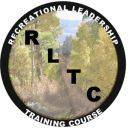|
|||||||||||||||||||||||
 |
Empowering Leadership™, the new article series for leadership development, by Del Albright -- helping to lead volunteers to victory! |
|
For years I've felt we needed an organized and somewhat standardized method for conducting recreational events, trail projects, meetings and conferences. All across the nation, clubs and organizations do business a little bit differently, and we all have had our successes (and failures). More and more we are banding together, across state lines, to help each other and to learn from each other. But we have not had, until now, a standardized approach to staffing and organizing our activities. I offer you that with the Recreational Incident Command System (RICS). I have taken the Incident Command System (ICS) used by nearly all emergency workers, fire departments and law enforcement agencies across the nation, and modified it to fit recreation pursuits. ICS was adopted in the 1970's as the standardized way of managing emergencies. In the 1980's, I figured out that it worked so well, that it could be used in other areas besides emergencies. I adopted ICS to meetings and conference management and was published nationally for doing so. The Recreation Incident Command System (RICS) starts with the premise that everyone should have a job; know what that job entails; and know how that job relates to other jobs in the organization. It then ties everyone together with a common language and communications system. Then it sets up parameters for meeting your event objectives through the various positions in the organization. Most importantly of all, ICS (and now RICS) get the job done, get it done right, and eliminate many of the hassles we've all experienced in organizing big events or trail projects. RICS comes with pre-made forms that I developed to help you organize anything from a convoy to a meeting to a convention. I have used the forms and process to orchestrate nearly every activity and tour on the Rubicon Trail. It has helped not only motivate volunteers, but also obtain grant money for the trail. Here, in general, is how RICS works. The leader is called the Incident Commander (IC). That is the first step -- only one boss. The IC sets the objectives and expectations for the activity, as well as defines the mission. Working for the IC are four Command Staff positions: the Operations Chief, Logistics Chief, Planning Chief, and Finance Chief. Don't worry, for small projects, one person can have more than one job. You staff up only enough to take care of the mission; but you need to consider each function and who will perform it. Many folks may have more than one job (title). Under the Chiefs are the Team Leaders, then Crew Leaders and Crews. RICS gives you a simple way of organizing your personnel and accounting for their work. Under the Operations Chief, there are functional or geographic breakdowns -- Divisions and Groups. A Division is a particular chunk of ground (road, trail, area) that is assigned to a specific number of people such as from point A to B could be called Division A. From point B to C could be called Division B. A ------------(Division A)------ B ---------(Division B)---------------- C You can also break up your crews into functions such as wheelbarrow crews and water crews. These type crews might have the whole trail as their mission area, and not just one chunk of geography. Their job is more functional than terrain oriented. However, for most trail projects you’ll probably find it easiest to divide the terrain up into Divisions, or even simpler, into Teams with areas assigned. Further, with RICS, the principle is to staff up to the level of your needs; then staff down as the incident diminishes. It works well. Each Chief is responsible for staffing up their section to meet the needs of the incident. RICS has standardized forms. I developed these forms to fit the needs of trail rides, convention planning, events, convoys, and meetings. Put together, the forms make up a complete Plan for any incident. These forms come as part of the Recreational Leadership Training Course. Let’s look at some titles (Team and Crew Leaders) for a conference example. Here are some positions that might be assigned to work under one of the Chiefs: Raffle Team Leader; Chow Team Leader; Entertainment Team Leader; and Facilities Team Leader. Each job has specific duties/responsibilities and no one else gets in their business. They accomplish their mission based on the overall mission, the goals, objectives and expectations set by the IC.
We aren't expected to read minds as to what someone wants. RICS does depend on everyone knowing their job and what's expected of them. So it is imperative that the boss make sure the picture (vision) is clearly communicated to the crew. RICS does take a little training and practice to get used to. But you'll save a lot time and effort in the long run. If nothing else, we all should take better advantage of the idea of Objectives and Expectations for nearly everything we do with volunteers. Even if you don’t use RICS, the day is here when anyone who wants the time of volunteers needs to be very organized. Folks don’t want to spin their wheels or waste time. So we must provide organized ways of getting organized. Otherwise, we’ll lose our volunteers and members of our groups. We are all just too busy these days; we don't want our time wasted. In order to be something that folks want to be a part of, you’ve got to be organized and efficient. The Recreational Incident Command System (RICS) is one proven, guaranteed way to ensure your event, trail project, meeting or conference is a success. |